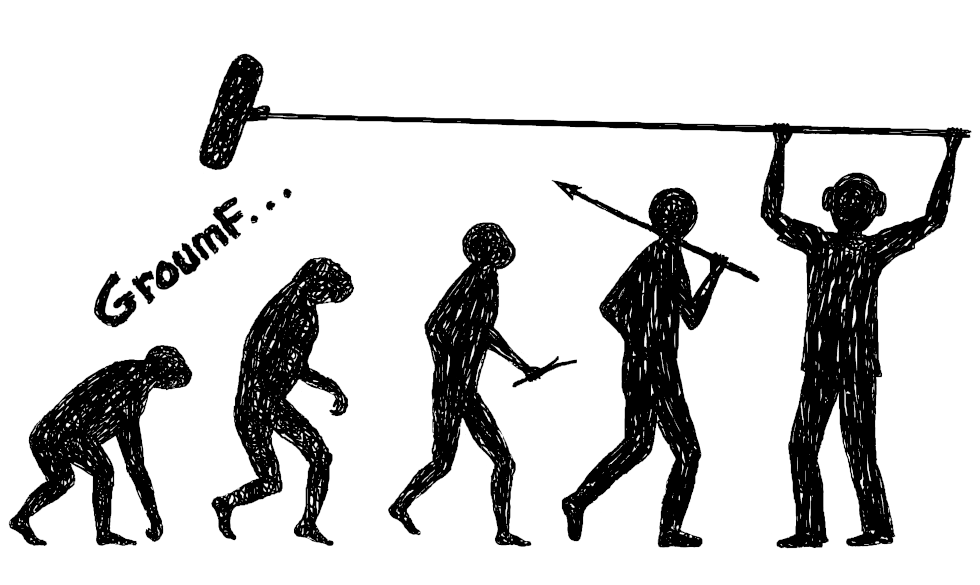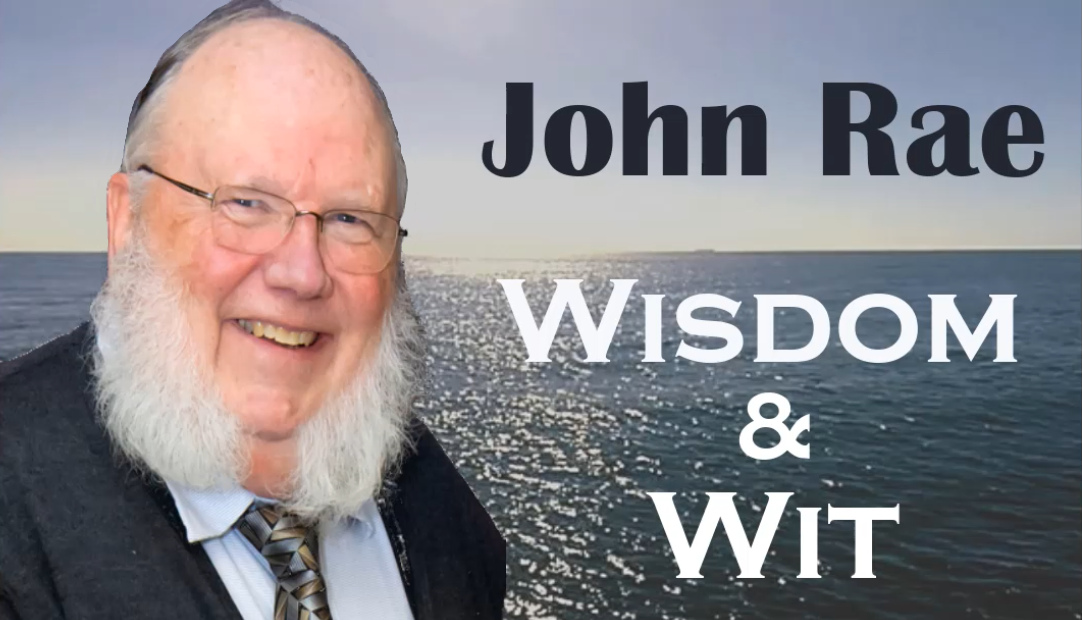Is neo-Darwinism compatible with the Catholic faith? How did life arise on Earth? Did God create everything in six days or was there a “big bang” over 13 billion years ago? And did life subsequently arise in some “primeval soup?”
I think many people see two distinct camps in this debate: The first, which is widely accepted, is that there was a big bang which happened long ago, and over the eons the earth formed and life arose due to a favourable physical environment. Then there are the so called “creationists” who have a literal interpretation of Genesis. I am not so sure that either view is so clear cut. I suspect there may be many who have doubts about various aspects of both views.
What I would like to do in this post is discuss Catholic thought on the topic and outline some issues that have arisen based on more recent developments in biochemistry and nano technology to shed some light on the issue.
First let’s start with a definition of neo-Darwinism taken from the New World Encyclopedia,
Neo-Darwinism, also called the modern evolutionary synthesis, generally denotes the integration of Charles Darwin's theory of evolution by natural selection, Gregor Mendel's theory of genetics as the basis for biological inheritance, and mathematical population genetics….Essentially, neo-Darwinism introduced the connection between two important discoveries: the units of evolution (genes) with the mechanism of evolution (natural selection).1
One tenant of neo-Darwinism is that humans are believed to have evolved from apes…and apes in turn evolved from lower forms of life. Most Catholics may have some idea of evolution and what it is about, but are we familiar with some of the teachings of the church that touch upon this subject? Some directly, but others not so directly that none the less have implications on the topic.
First let’s start with Pope Pius XII. -His encyclical Humani Generis, promulgated on August 12, 1950, lays out some basic principles. Indeed this is an excellent resource that is solidly based on scripture and great saints of the past such as Thomas Aquinas. Or to put it in Pope Pius XII own words, he has relied upon,
...so many and such great resources which have been conceived, expressed and perfected so often by the age-old work of men endowed with no common talent and holiness, working under the vigilant supervision of the holy magisterium and with the light and leadership of the Holy Ghost in order to state the truths of the faith…2
Nor is this encyclical opposed to progress. That progress must build upon the truths the church has already established:
...since God, the highest Truth, has created and guides the human intellect, not that it may daily oppose new truths to rightly established ones, but rather that, having eliminated errors which may have crept in, it may build truth upon truth in the same order and structure that exist in reality, the source of truth.3
One important point he makes in his encyclical is that humanity originated from one set of parents, that sin and death entered the world through one man.
When, however, there is question of another conjectural opinion, namely polygenism, [humans arose from more than one set of parents] the children of the Church by no means enjoy such liberty. For the faithful cannot embrace that opinion which maintains that either after Adam there existed on this earth true men who did not take their origin through natural generation from him as from the first parent of all, or that Adam represents a certain number of first parents.4
Pius XII goes on to write:
Now it is in no way apparent how such an opinion can be reconciled with that which the sources of revealed truth and the documents of the Teaching Authority of the Church propose with regard to original sin, which proceeds from a sin actually committed by an individual Adam and which, through generation, is passed on to all and is in everyone as his own.5
St. Paul writes in his letter to the Romans: “Wherefore as by one man sin entered into this world, and by sin death; and so death passed upon all men, in whom all have sinned.” (Rom. 5:12)
St. Paul also writes about how creation itself was affected by original sin: “…for the whole creation is waiting with eagerness for the children of God to be revealed. It was not for its own purposes that creation had frustration imposed on it, but for the purposes of him who imposed it. With the intention that the whole creation itself might be freed from slavery to corruption and brought into the same glorious freedom as the children of God. We are well aware that the whole creation, until this time, has been groaning in labour pains.” Rom. 8:19-22
Thus before the fall of Adam and Eve, our first parents would not have experienced illness, old age or death.6
Since evolution involves natural selection and death, as “obsolete” creatures must die to make way for more viable ones, and excludes the action of God, those who propose it are now faced with the problem of explaining the origins of life from a purely materialistic perspective. Again, without the action of God. There is only one option and that is to propose that life arose through abiogenesis - the belief that life somehow originated from inert matter. A process that no one has been able to plausibly lay out in any detail to this day.
This world view contradicts what we see in scripture, both from the Old and New Testaments.
What does St. Thomas Aquinas have to say about creation? according to Aquinas, creation has an order and purpose. Nor is there anything random about it. “But it is better for a thing to be made for an end than to be made without the intention of achieving an end; for the goodness that is in things which are made comes from their end. Hence things were made by God for an end.”7 This end is to reflect various aspects or perfections of God. “Since the divine goodness could not be adequately represented by one creature alone, on account of the distance that separates each creature from God, it had to be represented by many creatures, so that what is lacking to one might be supplied by another.”8
“Moreover," St Thomas goes on to write, "things were produced by God in a supremely excellent way; for the most perfect Being does everything in the most perfect way.”9 He outlines the degrees of perfection evident in creation. Different beings having different degrees of perfection make up what is called the hierarchy of being. Within this hierarchy of being is a perfectly simple being whose existence and essence are one. This is God. Then there are the angels, beings having a distinct existence and essence and are form only. There are also beings which are composites of form and matter which are man and all lower creatures.10
As everything is created with an end in mind there can be no blind processes that gave rise to life. And given that God has established a fixed hierarchy in the spiritual realm, does it not make sense that the case would be similar in the physical world that He created? This is what St. Thomas’ thinking is to be pointing toward.
Father Chad Ripperger, a Catholic priest and exorcist, applies this Thomistic thinking to critique the theory of evolution in his book The Metaphysics of Evolution,
In the theory of evolution, the existence of a being comes from that which is lower. For example something without sight through a mutation begets something with sight. Since the faculty of sight is higher than blindness in the order of being, something without sight begets something with sight. This violates the principle of priority of act to potency insofar as that which has sight (act) has a dependency on that which does not have sight (potency) for its existence. in this respect, the theory of evolution places potency prior to act, not just in the order of time, but in the ontological order. This is absurd since to possess a perfection (act) is better than not to have a perfection (potency)”11
Just to define terms in order to understand what Fr. Ripperger is writing: Act - in Ontology it refers to the existence of a thing.12 Potency - that which is capable of being actualized.13 Form - the constitutive element of a substance which is the principle or source of its activity and which determines its membership in a definite species or class; that which makes this matter into a certain kind of being, e.g. the form of dogness makes this matter to be a dog.14
There are a number of problems with the theory of evolution besides these ones. From the Catholic perspective neo-Darwinism undermines first, the doctrine of original sin. Conflict, competition, death and decay have been the reality right from the very beginning, ruling out the possibility of a Fall. Second, it denies the reality that man is made in God’s image and likeness with an immortal soul. After all, if our origins are from inert matter how can we have a soul? Third, there can be no objective moral law. The only valid law is the survival of the fittest. Finally, this belief system undermines the idea of a personal God.
Such a view of creation leaves men vulnerable to destructive political ideologies as Pope Pius XII explained in Humani Generis,
Some imprudently and indiscreetly hold that evolution, which has not been fully proved even in the domain of natural sciences, explains the origin of all things, and audaciously support the monistic and pantheistic opinion that the world is in continual evolution. Communists gladly subscribe to this opinion so that, when the souls of men have been deprived of every idea of a personal God, they may the more efficaciously defend and propagate their dialectical materialism.15
Pius XII offers this prudent advice regarding how to approach scientific theories:
...caution must be used when there is rather question of hypotheses, having some sort of scientific foundation, in which the doctrine contained in Sacred Scripture or in Tradition is involved. If such conjectural opinions are directly or indirectly opposed to the doctrine revealed by God, then the demand that they be recognized can in no way be admitted.16
What about developments in modern science? Do they support evolution? When Charles Darwin proposed his theory of natural selection no one was aware of how complex the biochemistry was that sustained life. Much has been learned about the inner workings of the cell during the decades following Watson and Crick’s discovery of DNA in 1953.
Many scientists have become very skeptical of evolution. Cells store information in their DNA and have a means to encode this information from the DNA onto messenger RNA which then gets decoded into proteins using ribosomes and transfer RNA. This process is complex, involving many other proteins and a very efficient means of detecting and correcting errors during the process. As well, this whole system, which is comprised of many interacting components, that the cell utilises during the encoding/error checking/decoding process - that is from when the the DNA is initially transcribed to the end when the resulting protein is strung together and folded - is self contained. For example, proteins used in the structure of the ribosomes used to decode the messenger RNA into proteins are themselves encoded in the DNA. This makes it very difficult to imagine how such an interdependent complex system can be constructed in a random manner.
DNA itself is a marvel. It contains an alphabet - a triplet code. But there is more - it is very efficient at storing information. Perry Marshall in his book Evolution 2.0 writes,
...there is not one ‘genetic code’; there are many. This aspect of the code, the triplet code, is only the most famous one. There are many other codes interlaced on the same strand of DNA. They generate different instructions, depending on where you start and stop reading, and whether you read them forward or backward. For example, the differences between a kidney cell and a skin cell are only possible because each cell reads different codes from the same DNA strand.17
This video from the discovery institute, titled The Extraordinary 4-Dimensional Design of DNA with Dr. Robert Carter has a very nice summary of the complex biochemistry of the cell and how the operating system within it manages these complex processes.
There are also problems with the theory of abiogenesis - the genesis of life from physical processes acting on inert material. I would highly recommend watching this entertaining video recording of a talk given by James tour, The Mystery of the Origin of Life. He is a synthetic organic chemist and has experience in the field of nanotechnology, building nano machines. He outlines why abiogenesis - life arising spontaneously from inanimate matter is so unlikely.
Some of the questions asked at the beginning of this article can't, in my opinion, be answered in this life. According to scripture the world was a very different place before the fall of Adam. It was most likely governed by very different physical laws, so to extrapolate back to time zero using the physical laws in our current fallen reality may not be the best idea. One final thought. Hurbert Yockey has written an excellent book, Information Theory, Evolution, and the Origin of Life. In it he covers a wide variety of topics but, not being a believer, (at least at the time he wrote the book) at least he gave an honest assessment of the origin of life from this point of view:
Looking backward in time, through a glass darkly, how near to the origin of the genetic code can we see? It is often speculated that the genetic code began as a binary alphabet. This is not a fruitful speculation as DNA and RNA are composed of four compounds that form a primary four letter alphabet. Even with some imagination we may consider a sixteen-member code composed of the doublets of UCAG. [these are the base pairs in DNA] The origin of the genetic code is unknowable. I have no doubt that if the historic process leading to the origin of life were knowable it would be a process of physics and chemistry. Thus, the process of the origin of life is possible but unknowable.18
Not having a belief in a God who is a creator makes Yockey's conclusion inevitable - life must have arisen via material means…as in his mind there is no other possibility. But the physics and chemistry will forever elude those who limit themselves only to this view…because there are no blind physical and chemical processes that can design and create life…thus from this perspective the process of the origin of life is truly unknowable.
Has the pursuit of modern science lost its true purpose? Is it being used as a means to try to usurp the role that faith is meant to play in our lives? "Is the impetus for modern scientific inquiry triggered by a sense of wonder or a quest for domination?”19 Scientific inquiry, which is based on the premise that there is only a material world and every single thing in it only has a material origin and purpose, is doomed to fail.
Our efforts to understand of the world around us must be informed by “...so many and such great resources which have been conceived, expressed and perfected so often by the age-old work of men endowed with no common talent and holiness, working under the vigilant supervision of the holy magisterium and with the light and leadership of the Holy Ghost in order to state the truths of the faith…”20 Only then can we find answers to some of life’s mysteries, which modern science never ever can.
References
1. New World Encyclopedia, neo-Darwinism.
2. Humani Generis, paragraph 17.
3. Ibid, paragraph 30.
4. Ibid, paragraph 37.
5. Ibid, paragraph 37.
6. https://aquinas101.thomisticinstitute.org/adam-eve-and-original-justice.
7. Light of Faith, the Compendium of Theology by St. Thomas Aquinas. Sophia Institute Press. Manchester, New Hampshire. 1993, p. 109.
8. Ibid, p. 111.
9. Ibid, p. 109.
10. The Metaphysics of Evolution. Fr. Chadd Ripperger, FSSP. Books on Demand GmbH, Norderstedt., pp. 18-21.
11. Ibid, p. 15.
12. Ibid, p. 61.
13. Ibid, p. 66.
14. Ibid, p. 64.
15. Humani Generis, paragraph 5.
16. Ibid, paragraph 11.
17. Evolution 2.0. Perry Marshall. Benbella Books, Inc., Dallas Texas, 2015. p. 54.
18. Information Theory, Evolution, and the Origin of Life. Hubert Yockey. Cambridge University Press., New York, 2005. p. 173.
19. John Rae, correspondence.
20. Humani Generis, paragraph 17.
Blog image credit: https://catandcookies.com/detail-1.html
Authors
-
John Rae
-
Mark Pilon






